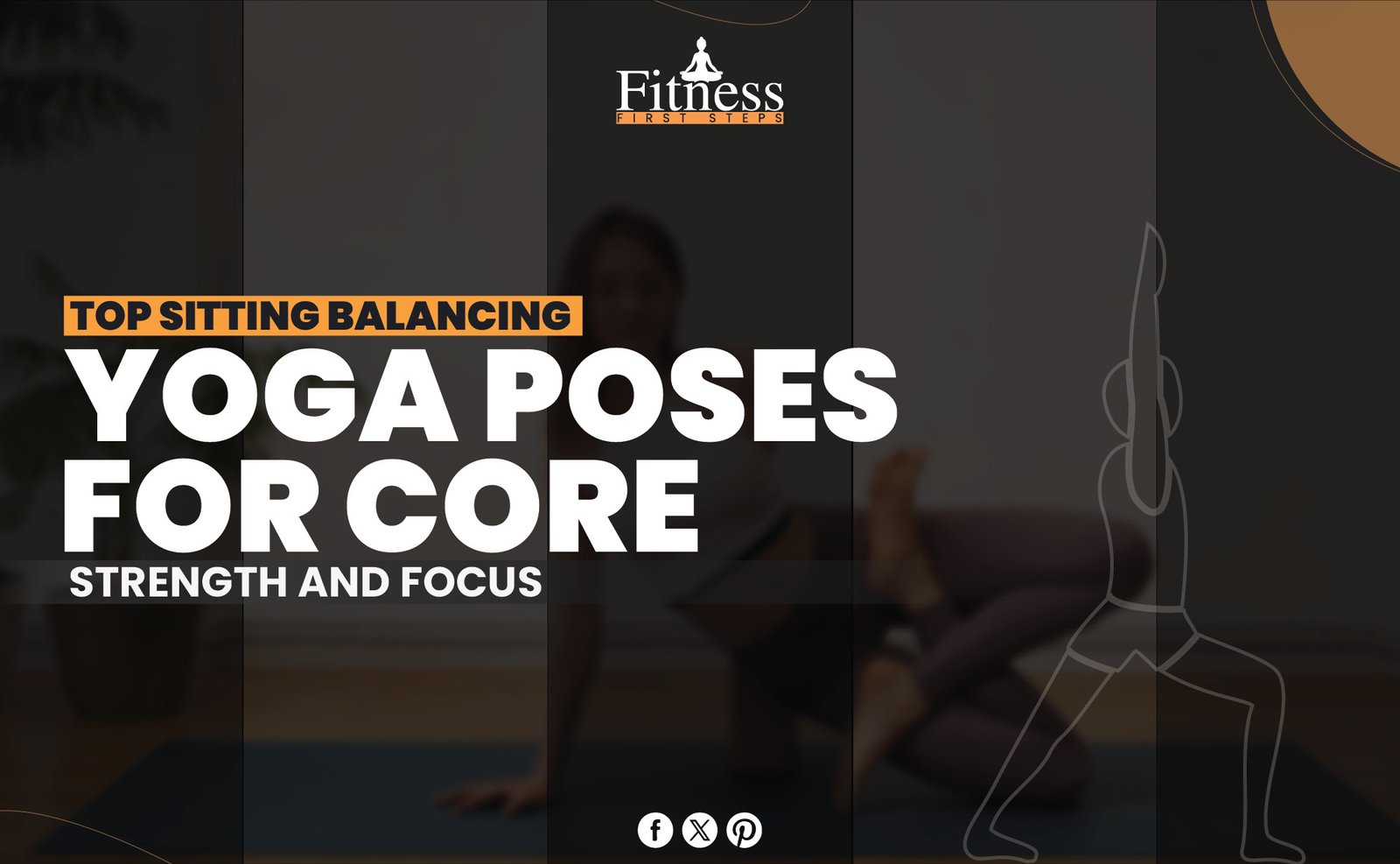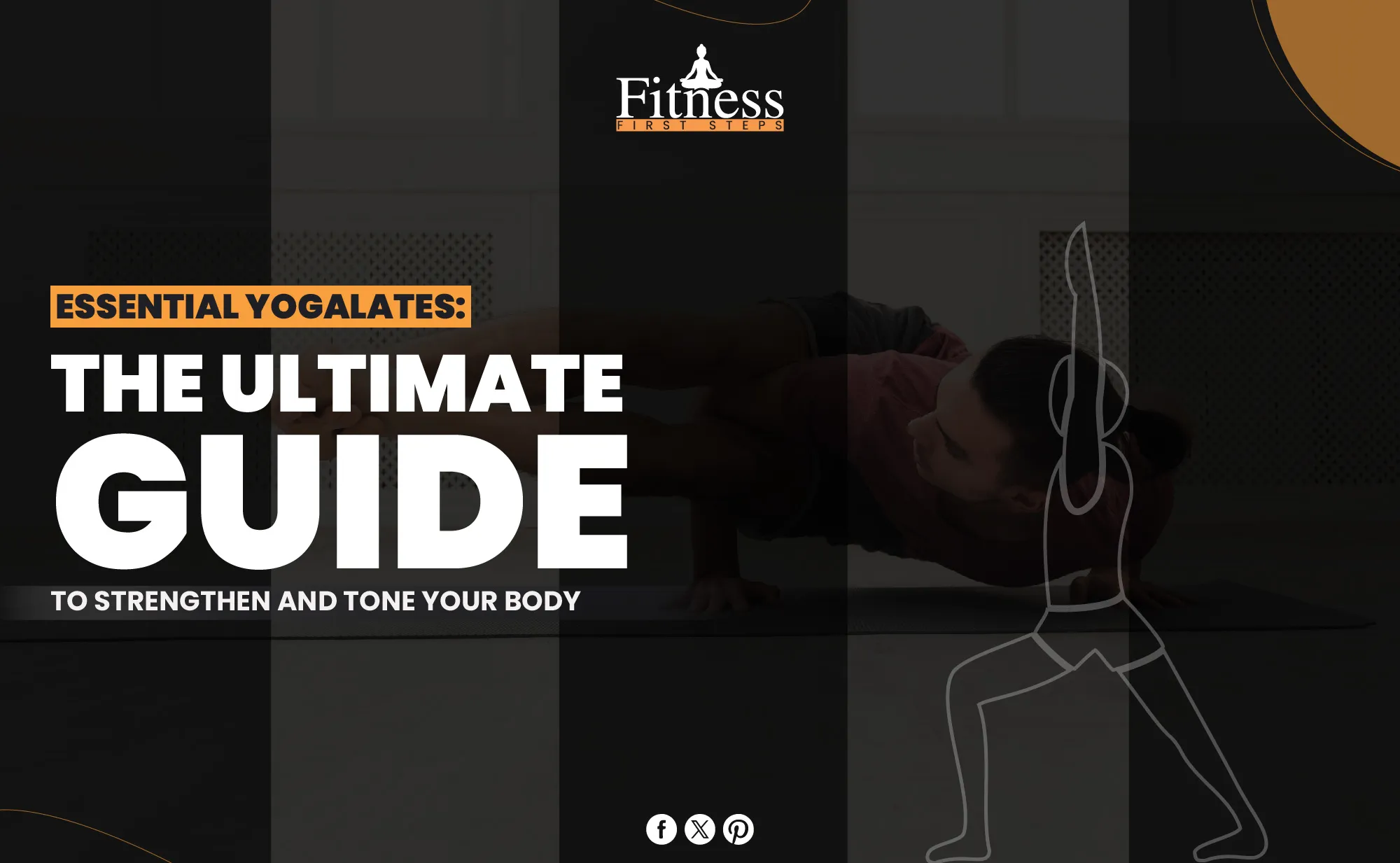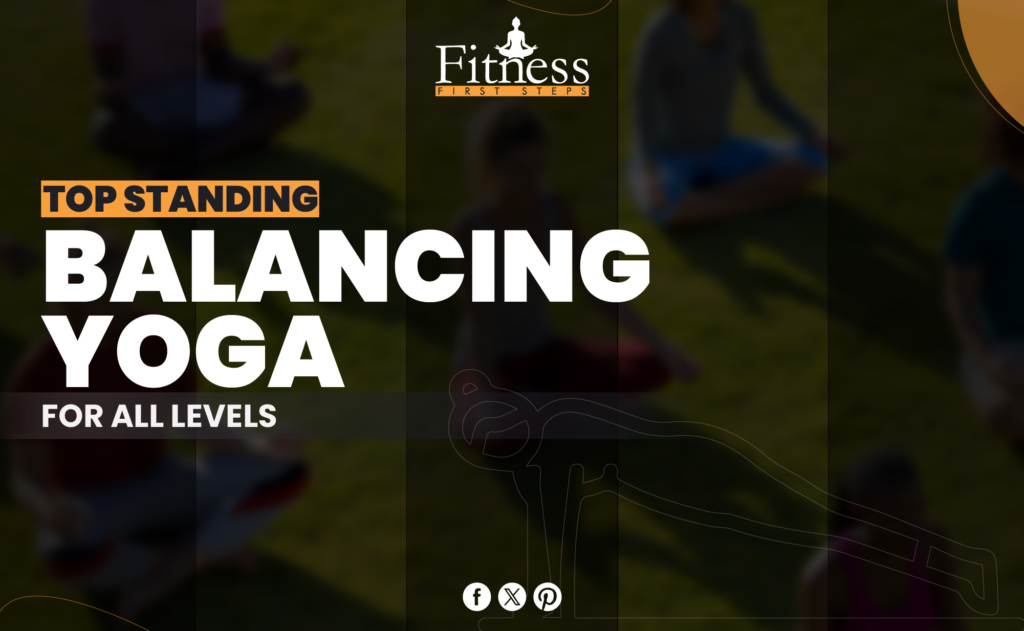Introduction
The practice of mindful yoga combines yoga’s asanas and movements with the mental discipline of awareness. Practitioners must focus on their movements, breathing, and body sensations. This helps them be fully present in the present moment.
Mindful yoga emphasizes mental awareness and process over physical alignment and position proficiency. By highlighting the mindfulness component so much, the practice becomes a meditative experience that cuts across physical limitations.
This tutorial explores how taking mindfulness into daily life can improve well-being and connectedness to the present. We will examine how mindful yoga can improve mental, emotional, and physical health, creating mind-body balance.
Read more about prenatal yoga in 3rd trimester.
The Foundations of Mindful Yoga
Mindful yoga combines two strong practices: yoga’s focus on the body and mindfulness’s focus on the mind. This section details the basic ideas that make mindful yoga what it is and explains how they improve our everyday lives.
The Physical Postures (Asanas): From easy to challenging, yoga’s core postures build strength and flexibility. In mindful yoga, the focus is much less on perfecting these asanas and more on fully feeling each movement.
Breath Awareness (Pranayama): Learning how to breathe is integral to yoga and mindfulness. Mindful yoga helps you stay in the present moment by making you more aware of your breath. This strengthens the link between your mind, body, and spirit.
Mindfulness Practices: These methods involve focusing on the present moment without judging it. You can become more tolerant and compassionate of yourself and your experiences by deliberately noticing your thoughts, feelings, and sensations during yoga.
Mindful Yoga Practices for Everyday Life
Mindful yoga practices can quickly become part of our daily lives. They give us tools and techniques to improve our general health and mindfulness. The following activities can help you become more aware in your daily life:
Mindful Breathing Exercises for Stress Relief and Relaxation: Focused, simple breathing techniques can help you relax and feel less stressed. Focusing on your breath for a few minutes can help you clear your thoughts, bring you back to the present, and calm your nervous system.
Incorporating Mindful Movement into Daily Routines, Such as Walking or Stretching Breaks: Adding mindful movement to everyday tasks, like stretching or walking, can help you become more aware of your body and lower your stress. You can reach a state of mindfulness by focusing on how each step feels instead of rushing through them.
Practicing Mindful Eating to Savor and Appreciate Food: Mindful eating means paying close attention to how you feel inside and outside your body while you eat or drink. By eating slowly and not paying attention to anything else, you can enjoy each bite, enjoy the flavors, and better understand your body’s cues for hunger and fullness.
Cultivating Mindfulness in Daily Chores and Tasks, Such as Cleaning or Cooking: Mindfulness exercises can be done while doing everyday things like cleaning or cooking. You can turn these things into peaceful and meditative times by giving them your full attention and not rushing through them or seeing them as jobs.
Using Mindfulness Techniques to Enhance Communication and Relationships with Others: Active attention, empathy, and non-judgmental awareness while interacting with others can help improve communication and strengthen relationships. By practicing mindfulness during conversations, relationships can become deeper and more critical.
Benefits of Mindful Yoga in Everyday Life
Mindful yoga isn’t just done on a yoga mat; its effects are woven into every part of our daily lives. This section discusses how regular mindful yoga can improve our mental and physical lives.
Reduction of Stress and Anxiety: Regular mindful yoga has made people much less stressed and anxious. By focusing on the present moment and maintaining an attitude of acceptance, individuals can break the cycle of long-term stress and anxiety and feel more peaceful.
Increased Ability to Manage Difficult Emotions and Situations: Mindful yoga gives people the tools to notice their feelings and thoughts without judging them. This can help them see things differently when things are hard. Practicing mindfulness helps you control your emotions and deal with problems better.
Improved Focus and Concentration: Attention to breath and movement, essential to focus, makes it more accessible. This can help your focus and attention span during yoga exercises and other dail.
Enhanced Appreciation for the Present Moment and Daily Experiences: Through practicing awareness, people learn to enjoy the present moment’s richness, whether alone or with others. This increased awareness can turn everyday things into sources of happiness and satisfaction.
Promotion of Overall Well-Being and Life Satisfaction: Mindful yoga’s mental, physical, and social benefits make you feel good. Practitioners often say they are happier with their lives because they are healthier, have stronger connections with others, and appreciate life’s little pleasures more deeply.
Overcoming Challenges in Practicing Mindful Yoga Every Day
Sometimes, practicing mindful yoga every day can be challenging because of various problems. You must understand and deal with these problems to maintain a consistent routine.
Addressing Common Obstacles, Such as Lack of Time or Distractions: Lack of time or distraction is common. Add shorter sessions to your day to fix this. Just a few minutes of careful breathing or yoga positions can help. Before practicing, identify and reduce distractions.
Dealing with Resistance or Skepticism Towards Mindfulness Practices: Learning more about the subject and having personal experience can often lessen resistance or doubt. Learn about how mindful yoga works and what it can do to help you understand its worth. Starting with easy-to-do tasks can help you get used to the practice and overcome doubts.
Finding Creative Ways to Integrate Mindfulness into Busy Schedules and Routines: Look for chances to practice being aware throughout the day. This could happen with everyday things like eating, showering, or traveling. The important thing is to focus on these tasks at hand and not do anything else at the same time.
Cultivating Patience and Persistence in Developing a Consistent Mindful Yoga Practice: Changing an old habit takes time and work. As you practice yoga and mindfulness, remember that growth is slow. Recognize small wins and give yourself time as you build a more regular practice. Don’t forget that the goal is not perfection but a more vital link with the present moment.
Mindful Yoga for Specific Situations
Mindful yoga can be beneficial for dealing with specific problems and events in life. Changing your practice to fit these needs can make it more useful and have a more significant effect.
Mindful Yoga for Stress Management in the Workplace: Short, mindful yoga sessions during the job can help you deal with stress and concentrate better. Simple stretches at your desk, conscious breathing techniques, or a short meditation can help you clear your mind and feel less stressed at work.
Mindful Yoga for Improving Sleep Quality and Managing Insomnia: Doing gentle yoga poses like forward bends or guided meditations before bed can help you relax and prepare your body and mind for sleep. As it promotes calmness, it can help people with trouble sleeping and improve overall sleep.
Mindful Yoga for Enhancing Creativity and Productivity: Mindful yoga is a great way to get more done because it can clear your mind and inspire new ideas. Focusing on breathwork and opening poses can wake the mind and create an atmosphere conducive to creative thinking.
Mindful Yoga for Navigating Challenging Relationships and Conflicts: Mindful yoga practices that focus on kindness, empathy, and self-reflection can help you see your relationships in new ways. These activities can also help you become more patient and understanding, which will help you better deal with disagreements with other people.
Cultivating a Mindful Lifestyle
Developing a mindful lifestyle affects many parts of daily life, not just the exercise itself. This way of life builds a deep sense of balance and peace, which helps people grow as individuals and creates a caring community.
Emphasizing the Importance of Self-Care and Self-Compassion in Mindful Living: Mindful living requires self-care and self-compassion. It would be best to treat yourself with the same compassion you show others. Self-love practices like rest, nourishment, and movement refill mental, physical, and emotional reserves, allowing you to live more completely.
Creating a Supportive Environment for Practicing Mindfulness at Home and Work: Designing your environment to encourage mindfulness can improve your practice. This may involve setting up a home meditation or yoga place or adding plants or soothing colors to relieve stress. It could include structuring your workspace to reduce distractions or supporting mindfulness-based wellness programs.
Incorporating Mindfulness into Daily Routines Through Habit Formation and Consistency: Making mindfulness a daily habit helps create a thoughtful lifestyle. This might be as easy as mindful breathing in line, mindful eating, or mindful hikes. Regularity in these practices encourages mindfulness throughout the day.
Recognizing the Interconnectedness of Personal Well-Being with the Well-Being of Others and the Environment: Mindfulness increases awareness of our interconnectedness with people and the environment. Recognizing our interconnectivity promotes behaviors that benefit us, our community, and the world. A mindful lifestyle may include conscious consumption, community service, and environmental sustainability.
Conclusion
This tutorial covers mindful yoga basics, stressing presence, awareness, and daily mindfulness. We also discussed how to overcome mindfulness problems, adapt mindful yoga to unique situations, and reap the overall benefits of a conscious lifestyle for personal and communal health.
Consider mindful yoga more than an exercise. It can help you find peace, presence, and fulfillment in your daily life. The tips and ideas in this article are just the beginning. They will help you look into your inner and outer worlds with new eyes and an open heart.
Mindful yoga transforms everyday moments into remarkable awareness and connection. By incorporating mindfulness into your daily routine, you enhance yourself, others, and the world. This practice can shift your viewpoint, revealing a universe where every breath, movement, and sensation offers deeper involvement and insight. May mindful yoga bring you discovery, progress, and calm.




